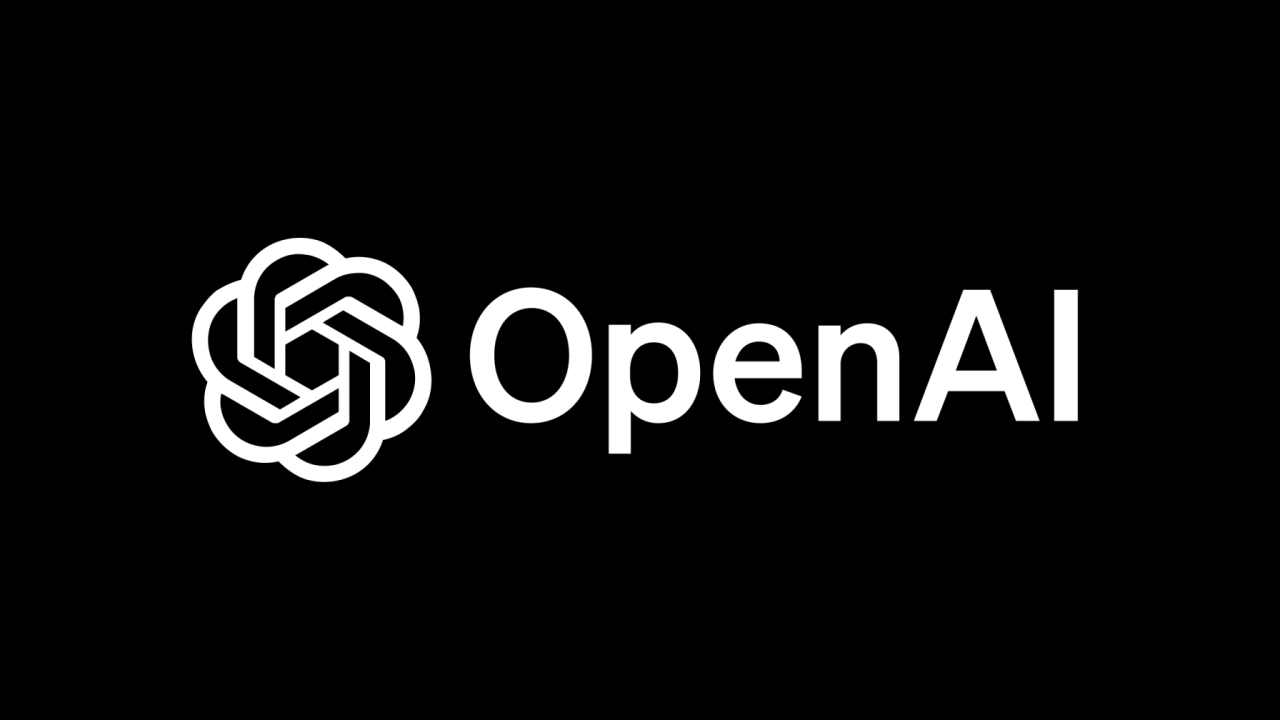Building Voice Assistants: OpenAI Unveils New Tools

Table of Contents
Enhanced Natural Language Processing (NLP) Capabilities
OpenAI's advancements in NLP are central to its revolution in voice assistant development. These improvements significantly enhance the ability to create truly intuitive and responsive voice interfaces.
Improved Speech-to-Text Conversion
Converting spoken language into text accurately and efficiently is a cornerstone of any successful voice assistant. OpenAI's new tools boast significant improvements in this area, resulting in more natural and reliable interactions.
- Reduced error rates compared to previous models: OpenAI's latest models show a dramatic decrease in transcription errors, leading to more accurate understanding of user requests.
- Enhanced handling of accents and dialects: The technology now better accommodates a wider range of accents and dialects, making voice assistants more inclusive and accessible to a global user base. This improves the accuracy of voice recognition across diverse populations.
- Improved performance in noisy environments: Building robust voice assistants requires handling background noise effectively. OpenAI's improvements enable more accurate transcription even in challenging acoustic conditions, enhancing the usability of voice assistants in real-world scenarios.
- Support for multiple languages: The new tools offer enhanced multilingual support, allowing developers to build voice assistants for diverse markets and audiences, expanding the potential reach of voice-controlled applications.
Advanced Intent Recognition
Accurately identifying the user's intent is vital for a helpful voice assistant. OpenAI's advancements go beyond simple keyword matching, enabling a deeper understanding of context and user needs.
- Contextual understanding for more accurate interpretation: The improved models consider the entire conversation history and context, leading to more accurate interpretation of ambiguous or complex requests. This contextual awareness is crucial for building truly intelligent voice assistants.
- Improved handling of ambiguous requests: OpenAI's technology excels at disambiguation, clarifying user requests that might have multiple interpretations. This leads to more reliable and predictable responses.
- Ability to learn and adapt to user behavior: The models incorporate machine learning techniques, allowing them to learn from user interactions and adapt their responses over time, providing a more personalized and effective experience. This personalized adaptation is key to building advanced voice assistants.
- Integration with various knowledge bases: OpenAI's tools integrate seamlessly with various knowledge bases, providing access to a wealth of information to answer user queries accurately and comprehensively.
Streamlined Development Process with New APIs and SDKs
OpenAI simplifies the process of building voice assistants through intuitive APIs and SDKs, making powerful NLP capabilities accessible to a broader range of developers.
Simplified Integration
The user-friendly APIs and SDKs significantly reduce the time and effort required to integrate voice assistant functionality into existing applications.
- Reduced development time and cost: Developers can leverage pre-built modules and functionalities, reducing development time and overall project costs.
- Easier access to powerful NLP capabilities: The APIs provide straightforward access to OpenAI's advanced NLP capabilities without requiring extensive expertise in machine learning.
- Comprehensive documentation and support: OpenAI provides comprehensive documentation and support resources, making it easier for developers to get started and troubleshoot any issues.
- Compatibility with popular programming languages: The APIs and SDKs support various popular programming languages, ensuring broad compatibility and flexibility for developers.
Customizable Voice Models
OpenAI empowers developers to personalize the voice assistant experience, creating unique and engaging interactions.
- Control over tone, style, and vocabulary: Developers can fine-tune the voice assistant's personality to match the brand and target audience.
- Options for creating unique voice profiles: The tools offer possibilities for creating distinct and memorable voice profiles, enhancing brand recognition and user engagement.
- Ability to integrate with custom data sources: Developers can integrate custom datasets to train the models, tailoring the voice assistant's knowledge and responses to specific domains or applications.
- Enhanced flexibility in response generation: The customizable nature of the models allows for greater control over the generation of responses, ensuring a more natural and engaging conversational flow.
Ethical Considerations and Responsible AI Development
OpenAI prioritizes responsible AI development, addressing ethical considerations proactively.
Bias Mitigation
OpenAI actively works to mitigate biases in its models, promoting fairness and inclusivity in voice assistant technology.
- Ongoing efforts to detect and mitigate biases: OpenAI continuously monitors its models for bias and implements strategies to reduce or eliminate them.
- Transparency in model training data: OpenAI promotes transparency in its model training data, allowing for greater scrutiny and accountability.
- Commitment to ethical AI principles: OpenAI adheres to a strong set of ethical AI principles, guiding its development practices and ensuring responsible innovation.
Data Privacy and Security
Protecting user data is paramount. OpenAI implements robust security measures to safeguard sensitive information.
- Secure data storage and transmission: OpenAI utilizes secure data storage and transmission methods to protect user data from unauthorized access.
- Compliance with relevant privacy regulations: The company ensures compliance with all relevant privacy regulations and data protection standards.
- Emphasis on data anonymization and de-identification: OpenAI employs techniques to anonymize and de-identify data whenever possible, minimizing the risk of identifying individuals.
Conclusion
OpenAI's new tools are revolutionizing the process of building voice assistants, making them more sophisticated, accessible, and ethically developed. The advancements in NLP capabilities, streamlined development processes, and focus on responsible AI pave the way for a future filled with innovative and user-friendly voice-controlled applications. Start exploring OpenAI's resources today and begin building your own cutting-edge voice assistant. Don't miss out on this opportunity to be at the forefront of voice technology innovation—begin building voice assistants with OpenAI now!

Featured Posts
-
 The Mystery Of Papal Names History Tradition And The Next Pope
May 06, 2025
The Mystery Of Papal Names History Tradition And The Next Pope
May 06, 2025 -
 March Madness Live Streaming Your Guide To Watching Without Cable Tv
May 06, 2025
March Madness Live Streaming Your Guide To Watching Without Cable Tv
May 06, 2025 -
 Gigabyte Aorus Master 16 Laptop Review Performance Noise And Value
May 06, 2025
Gigabyte Aorus Master 16 Laptop Review Performance Noise And Value
May 06, 2025 -
 Mindy Kalings Not Suitable For Work Comedy Headed To Hulu
May 06, 2025
Mindy Kalings Not Suitable For Work Comedy Headed To Hulu
May 06, 2025 -
 Reggie Millers New Role Nbcs Lead Nba Analyst And The Impact On Broadcasting
May 06, 2025
Reggie Millers New Role Nbcs Lead Nba Analyst And The Impact On Broadcasting
May 06, 2025
Latest Posts
-
 Alcoas Halle Bailey Following Moms Softball Footsteps In Tennessee
May 06, 2025
Alcoas Halle Bailey Following Moms Softball Footsteps In Tennessee
May 06, 2025 -
 Noviy Sezon Univer Molodye Alina Voskresenskaya I Ee Rol
May 06, 2025
Noviy Sezon Univer Molodye Alina Voskresenskaya I Ee Rol
May 06, 2025 -
 Aktrisa Alina Voskresenskaya Ot Magnitogorska Do Univer Molodye Na Tnt
May 06, 2025
Aktrisa Alina Voskresenskaya Ot Magnitogorska Do Univer Molodye Na Tnt
May 06, 2025 -
 Podrobnosti O Roli Aliny Voskresenskoy V Novom Sezone Univer Molodye
May 06, 2025
Podrobnosti O Roli Aliny Voskresenskoy V Novom Sezone Univer Molodye
May 06, 2025 -
 Tnt To Nbc Reggie Millers Transition And The Future Of Nba Coverage
May 06, 2025
Tnt To Nbc Reggie Millers Transition And The Future Of Nba Coverage
May 06, 2025
